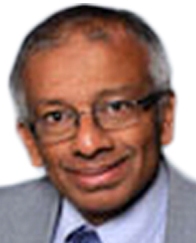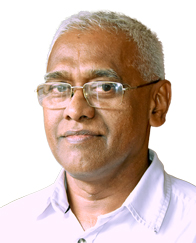| Date |
09:30-10:30 HRS |
11:00-12:30 HRS |
14:00-15.30 HRS |
16:00-17.30 HRS |
| Timing for DAY 1 |
| December 16 |
Inaguration of GIAN course |
Lecture 1 (TSS):
Introduction and overview: Historical background, Industrial significance of Fatigue, The
Brittle Fracture, Changes in Design Philosophy, Life-Limiting Factors |
Lecture 2 (TSS):
Ductile and Brittle Fracture, Macroscopic Ductile and Brittle Fracture Surfaces, Ductile-to-
Brittle Transition, Intergranular Failures, Steel Embrittlement, Combined Fracture Modes |
Lecture 3 (TSS):
Different approaches to fatigue: role of continuum mechanics, linear elasticity, stress invariant,
elements of plasticity |
| Timing for DAY 2 to DAY 10 |
| Date |
09:30-11:00 HRS |
11:30-13:00 HRS |
14:00-15.30 HRS |
16:00-17.30 HRS |
| December 17 |
Lecture 4 (TSS):
Fatigue of Metals: Stress Cycles, High-Cycle Fatigue, Low-Cycle Fatigue, Empirical fatigue
models, Paris law and fracture toughness, Microstructural mechanisms of prolonged fatigue
lifetime |
Lecture 5 (TSS):
Cyclic deformation in ductile solids-A: Cyclic strain hardening; instabilities in cyclic
hardening, Cyclic saturation; cyclic hardening and softening in polycrystalline; the bauschinger
effect |
Lecture 6 (TSS):
Cyclic deformation in ductile solids-B: Deformation along persistent slip bands, formation of
persistent slip bands, Dislocations structures of persistent slip bands, effect of crystal structure,
grain boundaries, precipitation, Monotonic versus cyclic deformation |
Lecture 7 (PSR):
Creep of metals: High temperature time dependent deformation of materials, creep curve,
deformation mechanism maps, mechanisms of creep deformation |
|
| December 18 |
Lecture 8 (TSS):
Phenomenological approaches based on cyclic stress and cyclic strain: Factors affecting fatigue;
constant amplitude fatigue loading; Variable amplitude fatigue loading, fatigue cracks |
Lecture 9 (TSS):
Stress-life approach, means stress effects on fatigue, cumulative damage; effects of surface
treatment; strain-based approach to fatigue |
Lecture 10 (PSR):
Experimental techniques for creep deformation behavior:
Creep tests: Constant load test, constant stress test; stress rupture test, accelerated creep test; |
Lecture 11 (TSS):
Crack initiation along grain boundaries; Crack initiation in commercial alloys; role of the
inclusion; micromechanical models
Fatigue crack growth in ductile solids: Characterization of the crack growth; microscope stages
of crack growth and stage II crack growth; different regimes of the fatigue crack growth; near
threshold fatigue crack growth; intermediate region of crack growth; high growth rate regime |
|
| December 19 |
Lecture 12 (TSS):
Retardation of the constant amplitude fatigue crack growth: What is crack closure?; plasticity
induced crack course ; oxide –induced crack closure ; Roughness –include crack closure ;
viscous –fluid induced closure; phase- transformation induced closure |
Lecture 13 (PSR):
Analysis of creep behavior and damage tolerance, Modeling for creep deformation: Constitutive
modeling; Monkman-Grant technique, artificial Neural network modeling |
Lecture 14 (TSS):
Basic issues of crack closure; qualification of crack closure; fatigue crack deflection; crack
bridging; crack tip shielding |
Lecture 15 (TSS):
Small fatigue cracks: Definition of small fatigue crack; similitude; micro structural aspect of
the small flaw growth; Threshold condition for small flaws; continuum aspect of the small flaw
growth; effects of physical smallness of flaws; origins of short crack problem |
|
| December 20 |
Lecture 16 (PSR):
Prediction of creep life by various parametric techniques: Larson–Miller parameter, Manson–
Haferd parameter, Orr–Sherby–Dorn parameter |
Lecture 17 (TSS):
Environmental effects on fatigue: Mechanisms of the corrosion fatigue; nucleation the
corrosion fatigue cracks, growth of the corrosion fatigue cracks |
Lecture 18 (TSS):
Modes for corrosion fatigue; fatigue at low temperatures; damage and crack initiation at high
temperatures; fatigue crack growth at high temperatures |
Tutorial 1 (TSS):
Problems related to real applications
Experimental issues related to fatigue and frature-1
Practical lab sessions |
| December 21 |
Lecture 19 (PSR):
Variable amplitude fatigue: What is variable amplitude fatigue? variable amplitude spectrum
loading; concept of the damage accumulation; retardation following overloads; transient effects
of following compressive overloads; load-sequence effects; life-prediction models |
Lecture 20 (TSS):
Fatigue of brittle solids: Degree of brittleness; high brittle solids; semi brittle solids static versus
cyclic load behaviour of the ceramics; crack initiation and crack growth in cyclic compression;
cyclic damage |
Lecture 21 (TSS):
Straightening mechanisms in fatigue |
Tutorial 2 (PSR):
Problems solving related to creep life prediction |
| December 22 |
Lecture 22 (PSR):
Analysis of creep behavior and damage tolerance, Modeling for creep deformation: Constitutive
modeling; Monkman-Grant technique, artificial Neural network modeling |
Lecture 23 (TSS):
Fracture mechanics and implications for fatigue: energy release rate and crack driving force;
linear elastic fractures mechanic modes of fracture, K. Dominance, fracture toughness, fatigue
crack growth |
Lecture 24 (TSS):
Crack tip plasticity: plastic zone size in monotonic loading, plastic zone size in cyclic loading;
model I fields for micro cracking solids; mixed model fractures mechanics |
Tutorial 2 (TSS):
|
| December 26 |
Lecture 25 (TSS):
Crack deflection: branched elastic cracks, plastic field for branched cracks |
Lecture 26 (TSS):
Microstructural effects on fracture toughness: Definition of the direction and planes;
microstructure and orientation microstructural anisotropy and properties effects of alloy
chemistry; processing for optimizing microstructure; |
|
|
| December 27 |
Lecture 27 (TSS):
Fatigue and Fracture of Engineering Alloys: Fracture Toughness of Steels, Fatigue of Steels,
Fracture Toughness of Aluminum Alloys , Fatigue of Aluminum Alloys , Fracture Toughness of
Titanium Alloys, Fatigue of Titanium Alloys |
Lecture 28 (TSS):
Examination, Evaluation |
|
Valedictory session and Certificate distribution |
| |
| December 27 |
Examination for students |
|
|
| TSS: Prof. T. S. Srivatsan and PSR: Prof. P. S. Robi |

